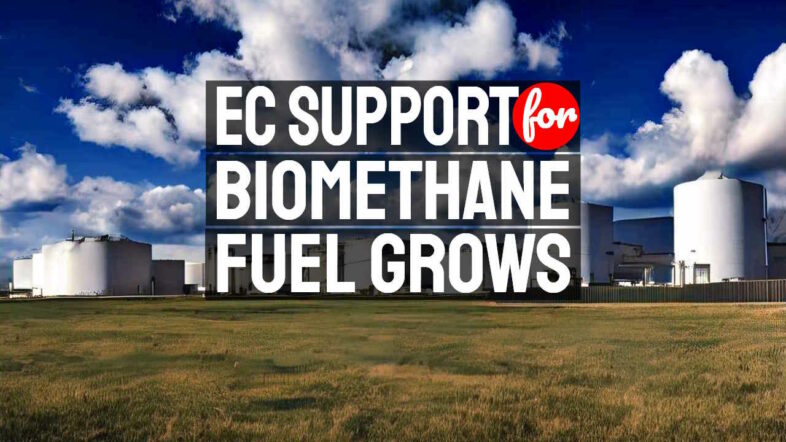The news is that EC support for biomethane fuel is continuing apace. So much so that a doubling of biomethane production by 2030 is being considered by the authorities in France. To us this makes sense.
It is a sustainable and environmentally friendly option for energy production and is considered a key component in the transition to a low-carbon economy.
Biomethane production is also beneficial for waste management, as it provides a solution for the treatment of organic waste. Instead of sending organic waste to landfills, which produce methane emissions that contribute to climate change, the waste can be sent to AD facilities to produce biomethane.
The use of biomethane has been increasing in Europe, with countries such as Germany, the UK, and Sweden leading the way in its production and use.
As demand for sustainable energy sources continues to grow, biomethane is expected to play an increasingly important role in the energy mix.
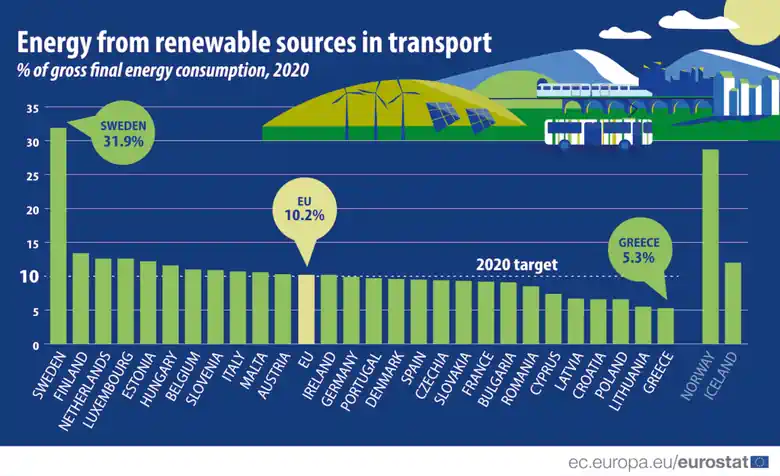
European Commission promotes biomethane as a renewable natural gas substitute
Biomethane is the purified form of raw biogas and can be used as a natural gas substitute, according to the European Commission.
It is a renewable energy source that is produced from the anaerobic digestion (AD) of organic matter. Anaerobic digestion is a process where microorganisms break down organic matter, such as food waste, agricultural waste, and sewage, in the absence of oxygen.
This process produces biogas, which is a mixture of methane and carbon dioxide. Biomethane is produced by removing impurities such as carbon dioxide, hydrogen sulphide, and water vapour from the biogas, resulting in a gas that is over 95% pure methane.
It can then be compressed and used as a fuel for vehicles, for heating, or for electricity generation. Compared to traditional fossil fuels, biomethane has lower carbon emissions and can help to reduce greenhouse gas emissions.
France considers doubling their biomethane production target for 2030
France mulls doubling biomethane 2030 target – Montel(Montel) France is considering doubling its target for biomethane production to 15% of gas consumption by 2030, while gas lobbies reckon it should be closer to 20%.
France is raising its biomethane production target in a commitment to reducing its carbon footprint.
Biomethane is a renewable gas produced by the anaerobic digestion of organic matter such as agricultural waste, sewage, and food waste. It has been recognized as a valuable source of clean energy and an important component in the transition to a low-carbon economy.
France’s move towards increasing its biomethane production target is a reflection of its commitment to reducing its carbon footprint and meeting its climate targets.
The gas industry, on the other hand, believes that a higher biomethane target is necessary to offset the decline in natural gas consumption and to meet the increasing demand for energy in the country.
Estonia commits to using biomethane in buses beyond 2030 as part of its long-term energy strategy.
This development presents an opportunity for the biomethane industry to expand and contribute to achieving a more sustainable energy mix in France. Estonia wants to continue using biomethane in buses after 2030.
Estonia is committed to the use of sustainable energy sources in the transportation sector and has recently expressed its intention to continue using biomethane in buses even after 2030.
This decision was announced by the Estonian Ministry of Economic Affairs and Communications, as a part of the country’s long-term energy strategy.
Biomethane is a renewable fuel produced from organic waste, such as food or agricultural waste, and is considered a low-carbon alternative to traditional fossil fuels.
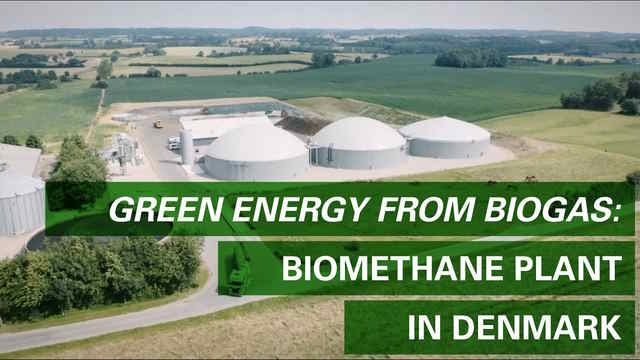
Estonia’s Public Transport System to Continue Running on 100% Biomethane Beyond 2030, Paving the Way for Sustainable Transportation Solutions
Its use in transportation has been gaining popularity in recent years, as countries look for ways to reduce their greenhouse gas emissions and abate climate change.
Estonia has been a pioneer in the use of biomethane in buses, with its public transport system already running on 100% biomethane since 2014.
This has helped the country to significantly reduce its carbon footprint and has been praised as an innovative and sustainable solution for public transportation.
The decision to continue using biomethane in buses after 2030 is a testament to Estonia’s commitment to sustainability, and its recognition of the importance of transitioning towards renewable energy sources.
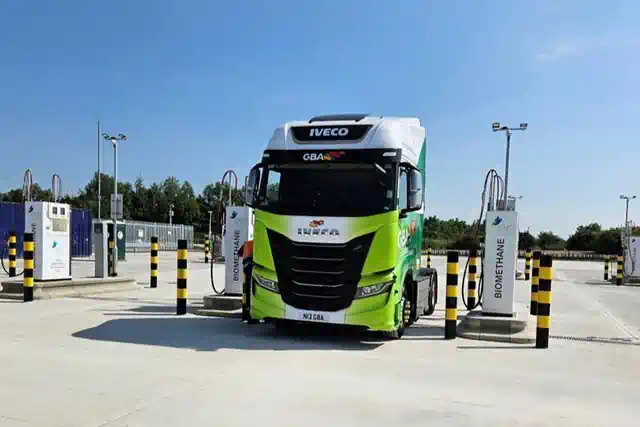
ReFuels expands biomethane refuelling infrastructure with 11th station in Northamptonshire
It is a positive step towards achieving the country’s climate goals and serves as an example for other countries looking to adopt sustainable solutions in the transportation sector.
Biomethane supplier ReFuels opens the 11th refuelling station under CNG FuelsBiomethane supplier ReFuels has recently achieved an impressive milestone in the development of its CNG Fuels brand. The company has opened its 11th refuelling station, expanding its network of biomethane refuelling infrastructure across the UK.
This latest station is located in Northamptonshire and offers an eco-friendly fuel option that is perfect for fleet operators looking to reduce their carbon footprint.
ReFuels’ biomethane technology provides an alternative to fossil fuels, using renewable biogas generated from food waste and agricultural residue.
ReFuels Expands CNG Fuels Network to Provide Sustainable Fueling Solution for UK Fleet Operators
As a result, the fuel produced by ReFuels is not only better for the environment but it’s also produced from sustainable sources. ReFuels is making great strides in providing a green energy solution to companies in the UK.
The company’s expansion of its CNG Fuels network is part of its goal to provide an efficient and sustainable fueling solution to fleet operators across the country. The new station in Northamptonshire is expected to save around 2,000 tonnes of CO2 emissions every year, helping to combat climate change and improve air quality.
With the continued expansion of its biomethane refuelling infrastructure, ReFuels is well-placed to meet the growing demand from fleet operators who are seeking to reduce their carbon footprint.
UK Companies Access Low-Carbon Biomethane from Methane-Farming to Reduce Emissions and Minimize Greenhouse Gas Footprint
One company’s commitment to delivering a sustainable and reliable fuel source is not only helping to reduce emissions. It’s also providing a valuable service to companies across the UK who want to make a positive impact on the environment.
It will provide customers such as Lidl, DHL, and GBA Services access to low-carbon biomethane fuel to minimise the greenhouse gas footprint of their companies.
Farming methane is a process that involves the capture and utilization of methane gas generated from various agricultural activities such as livestock rearing, composting, and manure management.
The process of farming methane involves the installation of biogas systems that are designed to trap the methane gas that is produced by the decomposition of organic matter.
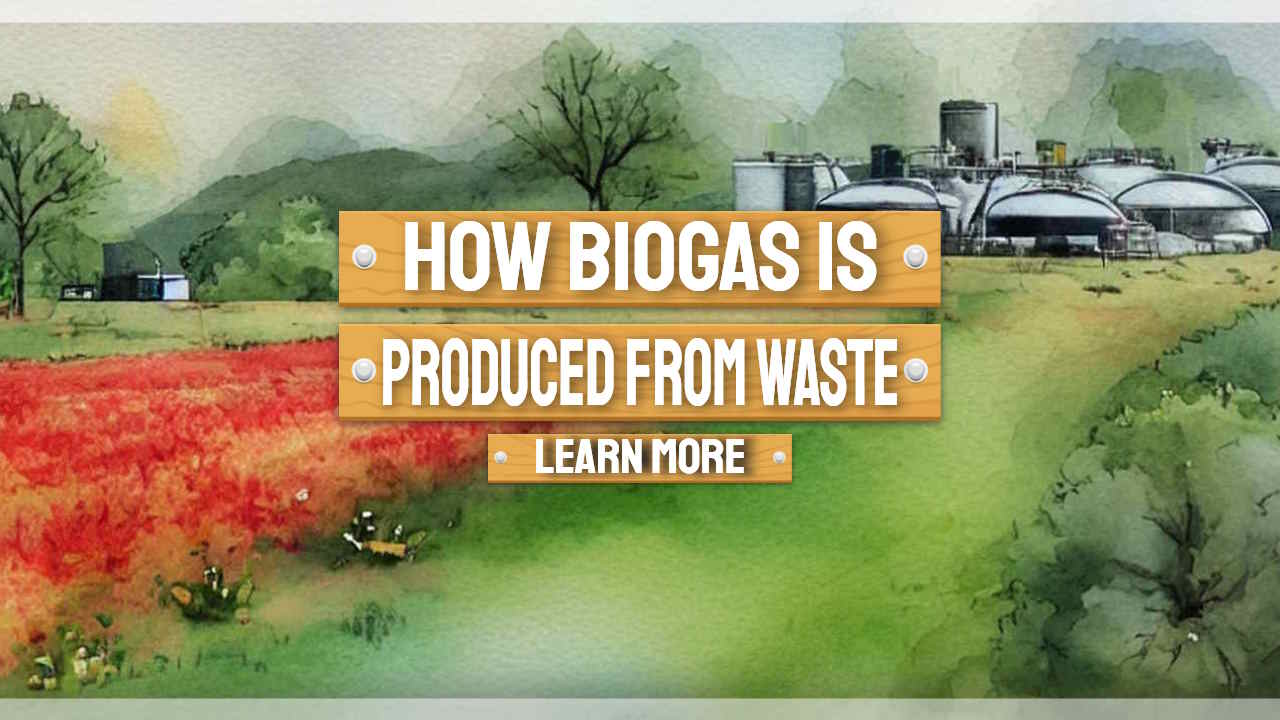
Earth Island Institute promotes biogas systems for sustainable farming and renewable energy production.
The captured methane can then be used as a renewable energy source for cooking, heating, and electricity production.
The Earth Island Institute is an organization that is committed to promoting sustainable agriculture practices and has been at the forefront of championing the use of biogas systems as a way of reducing greenhouse gas emissions and promoting sustainable farming practices.
The institute supports farmers by providing them with technical assistance and funding for the installation of biogas systems. The use of biogas systems in farming not only helps to reduce greenhouse gas emissions but also provides numerous benefits to farmers.
The captured methane gas can be used to generate electricity, which can be sold back to the grid, providing farmers with an additional source of income. via Farming Methane – Earth Island Institute.
Biogas Systems: A Sustainable Solution for Reducing Farm Emissions and Generating Renewable Energy
Additionally, the biogas systems help to reduce the odours associated with animal waste and improve soil health by providing a nutrient-rich fertilizer.
Farming methane is an innovative and sustainable way of promoting clean energy and sustainable farming practices. The Earth Island Institute is committed to supporting farmers in the adoption of biogas systems through technical assistance and funding.
By utilizing this biomethane fuel renewable energy source, farmers can reduce their carbon footprint, improve soil health, and generate additional income.
Conclusion – Biomethane Fuel Production to be Raised
The European Commission promotes the use of biomethane as a renewable natural gas substitute that is produced from the anaerobic digestion of organic matter.
Biomethane production helps in waste management and reducing greenhouse gas emissions. France and Estonia have been leading the way in increasing biomethane production and reducing their carbon footprint.
ReFuels, a biomethane supplier, has expanded its refuelling station in Northamptonshire to cater to the growing demand from fleet operators looking to reduce their carbon footprint.
The Earth Island Institute supports farmers in the adoption of biogas systems through technical assistance and funding to promote sustainable farming practices.
Is it any wonder that the proponents of biomethane call it a win-win that helps reduce farm emissions, produces an ostensibly “renewable” natural gas, and also gives farms?

